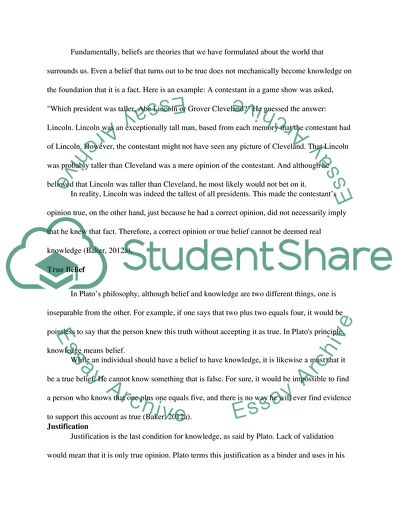Plato's three conditions for knowledge Essay Example | Topics and Well Written Essays - 500 words. https://studentshare.org/philosophy/1768164-platos-three-conditions-for-knowledge
Plato'S Three Conditions for Knowledge Essay Example | Topics and Well Written Essays - 500 Words. https://studentshare.org/philosophy/1768164-platos-three-conditions-for-knowledge.


